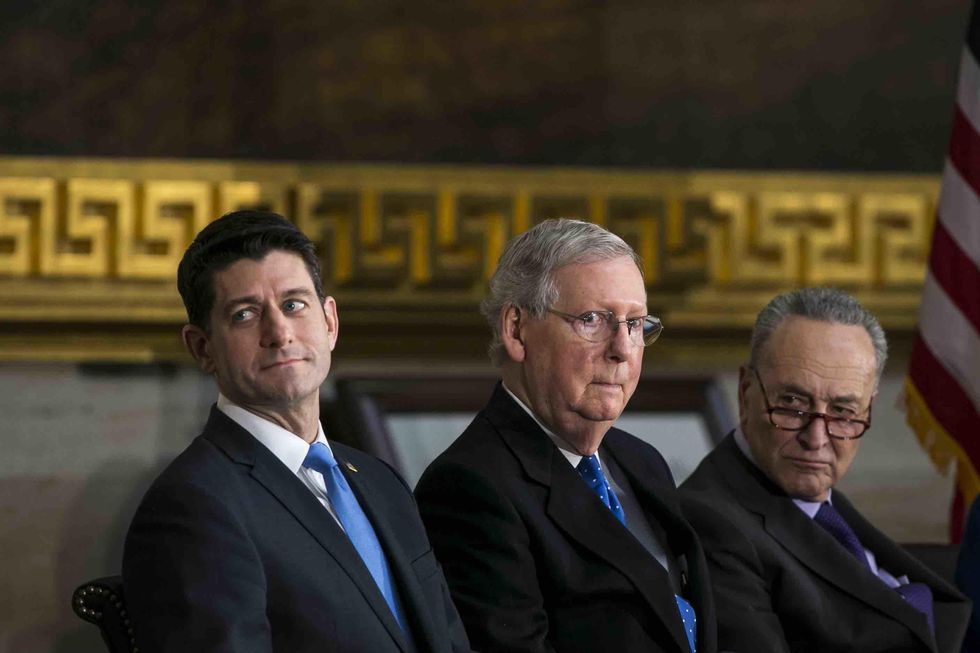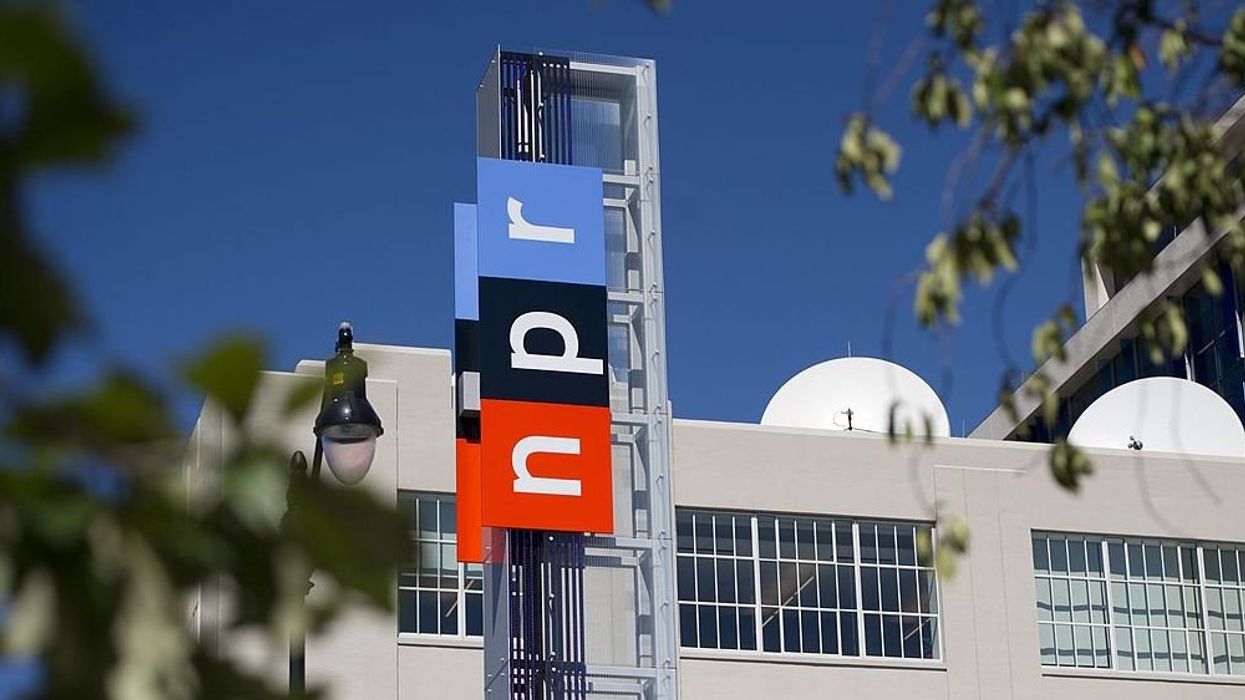Spending only the money you actually have. It’s a basic concept that even young children understand, and yet, the children running our government in Washington, D.C., can’t seem to figure it out.
On Friday, President Donald Trump signed into law a hefty two-year bipartisan budget bill that increases the debt ceiling until March 2019 and expands budget caps by $300 billion. About $165 billion will go toward defense-related spending increases, and $131 billion will pay for various discretionary programs, including $10 billion for infrastructure and $3 billion to tackle the country’s opioid crisis.
Setting aside for a moment whether the federal government should even be involved in some of these endeavors, it’s worth noting just how incredibly hypocritical and, frankly, utterly stupid Republicans in Congress look in the wake of this spending deal. These were the same people who lambasted Democrats in 2009 and 2010 for spending far too much money on their numerous government bailouts and stimulus programs — and rightfully so. Republicans also spent virtually every single day of Barack Obama’s presidency criticizing him for not taking the national debt seriously —a gain, rightfully so.
Now, despite having control of the House, Senate, and the White House for the first time in years, Republicans seem all-too-willing to worship their sacred cows instead of demanding fiscal restraint. If we can’t depend on congressional Republicans now, despite having one of the most “conservative” Congresses in the modern era, then there’s likely no chance Congress will ever take our national debt seriously. Do you hear me? I’m saying it’s hopeless. It’s never going to happen. It’s time to stop pretending like it’s a possibility.
Before explaining just how dire things are (because, apparently, a lot of people in Washington, D.C., still haven’t received the message), I want to make it perfectly clear that I understand Democrats have a significant role in the country’s debt nightmare. Democrats don’t care about running up the debt. They haven’t been concerned with that problem for decades, and perhaps they will never care about it again.
Democrats in Congress and the media, generally speaking, say they want to bring spending under control, but what they really want to do is implement as many socialist government programs as possible, costs be damned. But don’t worry, America, Democrats have a plan for when foreign governments stop lending us money and inflation from printing too much cash causes an economic crash: They’ll just raise taxes on the “rich,” which these days in liberal policy circles means just about anyone who earns a paycheck.
There’s plenty more that could be said about Democrats’ total disregard for fiscal sanity, but what’s the point? They have relatively little power right now at the federal level and were never going to solve this problem anyway. Republicans, on the other hand, have been promising the American people they would cut spending for as long as I can remember, a fact Sen. Rand Paul (R-Ky.), one of the few adults left in Congress, reminded his fellow Republicans in his recent last-ditch effort to knock some sense into his colleagues.
“When the Democrats are in power, Republicans appear to be the conservative party. But when Republicans are in power, it seems there is no conservative party,” Paul said.
“The hypocrisy hangs in the air and chokes anyone with a sense of decency or intellectual honesty,” Paul added.
“Chokes” is an understatement. I’m completely nauseated by Republicans reprehensible disregard for America’s future. And make no mistake about it, the crisis is real.
As Just the Facts notes, the U.S. debt is now $20.5 trillion, about $162,360 for every American household. On its own, that figure is downright shocking, but the current debt is just one factor. The present situation is actually much worse. At the end of the 2016 fiscal year, the United States also held $8.5 trillion in publicly held liabilities that remain unaccounted for. Even worse are the $29 trillion in future Social Security benefits and $32.9 trillion in future obligations for Medicare recipients that extend beyond projected revenues.
If you’re thinking, “Who cares about the debt, anyway? We’ve been spending like drunken sailors for decades, and the world hasn’t ended yet,” then you’re not alone. This is clearly how most of Congress thinks, too. But as easy as it might sound to keep borrowing and printing money to keep the good times rolling, there are several extremely important problems with increasing the national debt.
First, the U.S. dollar is used throughout the world as the currency of choice for many international transactions. Trillions and trillions of dollars are currently sitting in bank accounts in Asia, Africa and Europe, and their owners, many of whom are foreign governments, care very deeply about U.S. spending practices.
The more money America prints, the less valuable all other dollars become and the more unstable our money and economy appear to foreigners. If we don’t stop recklessly spending money, the world will at some point choose to create a global currency backed by the United Nations or switch to using another country’s currency. (There’s no law that says the world must use U.S. dollars.) If that occurs, it will likely send our economy into an epic collapse. U.S. dollars currently located overseas will come flooding back into the country, creating dangerous inflation that can only be stopped with skyrocketing interest rates, which, in turn, will make lending in the United States almost impossible.
A second massive problem is that the more money we borrow, the more we have to pay back in interest payments. In the 2017 fiscal year, the federal government paid out about $276 billion in interest payments on debt. If we continue borrowing, this number could double over the next 10 years, which means interest payments would become one of the biggest items in the budget, taking money away from programs that are needed.
We need radical, fundamental changes to our national budget, but congressional Republicans (not all, of course, but enough) have shown they aren’t going to be the ones to make those much-needed alterations. This is precisely why efforts to create a balanced budget amendment and other requirements mandating fiscal discipline are so important. Democrats have failed us. Republicans have failed us. It’s up to the People now to solve the problem.



